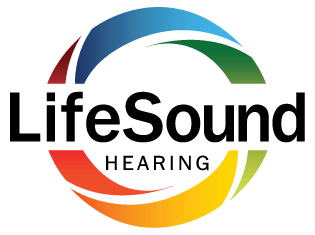
Our ears are frequently what carry the load of accidental harm from neglect in our busy daily lives. There are a few common but dangerous practices, including making use of cotton swabs and ear candling, that will put your hearing health in peril. Below, we delve into four essential ways to safeguard your sense of hearing and keep your ears healthy.
Bid farewell to ear candling
In spite of the complete lack of scientific merit, the ancient practice of trying to clear away earwax has recently achieved some popularity. It’s believed that a vacuum is created when a hollow ear candle is inserted into your ear canal and the wick at the opposite end is lit theoretically pulling impurities out. However, several studies have debunked this practice, highlighting its ineffectiveness and potential risks.
You might be putting your hearing in peril by using a practice that won’t even eliminate any earwax. Burns to the delicate ear structures, perforated eardrums, and exacerbation of existing issues can all be consequences of this practice. Furthermore, the residue left behind after ear candling frequently consists of candle wax and debris rather than extracted earwax.
Medical professionals always warn against ear candling because of these findings. Both the Food and Drug Administration (FDA) and the American Academy of Otolaryngology (AAO) warn against this practice, emphasizing safer methods for ear hygiene.
No more cotton swabs
It’s true that lots of individuals turn to these apparently innocuous tools to clean earwax out of their ears. But there are more dangers than benefits to inserting a cotton swab into your ear canal. Impaction and possible injury can be the result of using cotton swabs rather than actually cleaning out earwax.
The sensitive nature of the eardrum makes it susceptible to damage from outside objects, including cotton swabs. Pain, infection, and hearing impairment can all be the outcomes of perforations or abrasions of the eardrum. To prevent these complications, it is advisable to refrain from inserting any objects into the ear canal and instead depend upon the ear’s self-cleaning systems or seek professional assistance if necessary.
Be mindful of the volume: protect against loud noise
In an increasingly noisy world, our ears are continuously inundated by sounds of varying volumes. From busy city streets to recreational activities like concerts and sporting events, exposure to loud sound is ubiquitous. Over-exposure to loud sounds like these can have negative effects on your hearing health resulting in tinnitus and noise-related hearing loss.
It’s essential to use ear protection and, if you can, avoid very loud settings in order to prevent damage. Whenever you can’t steer clear of really loud noise, protection such as earplugs and earmuffs should be utilized.
Also, take regular breaks and moderate the volume when you’re using personal listening devices such as headphones and earpods.
If you notice any symptoms, act promptly
Perhaps the most critical aspect of sustaining optimal hearing health is being alert to the signals your ears give you and taking prompt action in response to any concerning symptoms. Despite the availability of advanced treatments, such as hearing aids, holding off on intervention can worsen hearing loss and complicate treatment.
It’s imperative to identify common signs of hearing impairment, such as difficulty understanding speech, ringing or buzzing in the ears (tinnitus), or a feeling of fullness or pressure in the ears. If any of these symptoms are experienced, seek assessment from a qualified hearing specialist or otolaryngologist (ear, nose, and throat specialist) immediately. Your hearing results as well as your quality of life will be significantly increased by early detection and intervention.
In conclusion, the health and well-being of our ears are vital in navigating the sensory landscape of our lives. We can preserve our healthy hearing by avoiding cotton swabs and ear candles, protecting our ears against loud noise, and identifying early warning symptoms.
If you suspect that you might be experiencing any symptoms of hearing loss, call us today for an appointment.
[blogcta]
